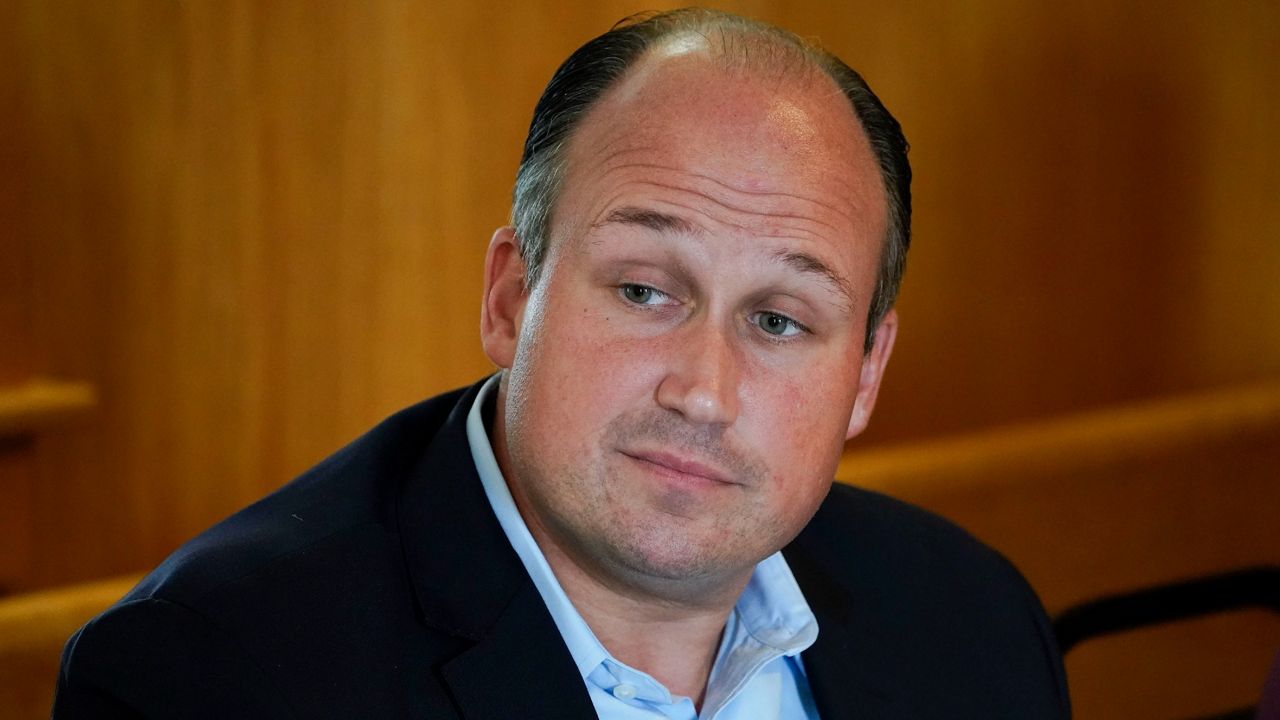

Western New York Congressmen Tenney and Langworthy Fail to Sign Letter Supporting Extension of the Affordable Connectivity Program
1000's of Western New York Households Risk Losing Internet Access
Imagine you lost your internet access. You couldn’t pay your bills. You couldn’t consult a doctor or check social media like TikTok or access government services – activities that all depend on access to high-speed internet. 22% of households have never had high-speed internet and another 23% have had to disconnect because they couldn’t afford the service. These individuals represent the stark reality of the “digital divide”—the gap between those with ready access to digital technologies such as smartphones, tablets, and laptops, and those without. [1]
The digital divide places many Americans at a socio-economic disadvantage, significantly impacting their ability to search for and secure jobs, shop online, or participate in digital learning. [2] These disparities were particularly evident during the COVID-19 pandemic. Students without home internet could be seen sitting in cars in dark school parking lots accessing free Wi-Fi to attend classes or do their homework.
To narrow the digital divide, in 2021, Congress included $14.2 billion for the Affordable Connectivity Program (ACP) within the $1.2 trillion Infrastructure Investment and Jobs Act. [3] The Affordable Connectivity Program provides a discount for low-income household, $30 to most low-income households and up to $75 to households on eligible tribal lands. ACP benefits approximately 23 million households or about 14% of the U.S. population including 1.8 million households in New York State. According to a study from the Benton Institute for Broadband & Society, the subsidy will provide $16.23 billion in annual benefits at a cost of $8.45 billion per year. [4]
However, the Affordable Connectivity Program is set to expire this month, leaving millions without reliable internet access. According to Chairwoman Jessica Rosenworcel of the Federal Communications Commission “25 million households” would be “unplug[ged]…from the internet” if Congress does not provide new funding for the ACP.” [5]
In response, over 120 House members, led by New York Representatives Yvette Clarke, a Democrat, and Brandon Williams, a Republican, have signed a letter advocating for continuation and expansion of the Affordable Connectivity Program. [6] And there is legislation in both the House and the Senate seeking an $7 billion to extend the Affordable Connectivity Program through year-end, allowing time to “work out the long-term changes that are needed for sustainable access,” according to Sen. Peter Welch (D-Vt.). This initiative has garnered bipartisan support, with over 220 co-sponsors in the House, including 206 Democrats and 24 Republicans.

Despite widespread support, there is significant Republican opposition. Senator Ted Cruz of Texas criticized the program, stating, “The Affordable Connectivity Program is not working as Congress intended. This massive welfare program should be considered a success, … but it turns out the vast majority of these people already had high-speed internet.” Senator Shelley Moore Capito (R-West Virginia) supports extending funding especially since over 100-thousand West Virginians are beneficiaries. But she also says, “…in West Virginia, some people are receiving this benefit that don’t really need it. …we need to have accountability to make sure that the people that are receiving this benefit are the ones that actually cannot pay, and would not pay otherwise had they not had the extra money to be able to afford it.” [7]
In New York, 30% of eligible households are enrolled in the Affordable Connectivity Program and are collecting more than $360 million in annual subsidies. [8] However, The Affordable Connectivity Program extension is notably not supported by Republican congressmen from Western New York even though thousands of households in their districts greatly benefit from the program. Congressman Nick Langworthy representing the 23rd district, which includes Western New York and the Southern Tier, and Congresswoman Claudia Tenney representing the 24th district, which encompasses counties along Lake Ontario, have not supported efforts to extend the Affordable Connectivity Program (see below).
As Congress addresses proposals to extend the Affordable Connectivity Program, the decisions will deeply impact the ability of millions of Americans including Western New Yorkers to stay connected in a digitally driven world.
Members of the New York Congressional Delegation Signing Letter of Support to Extend the Affordable Connectivity Program
| Member | Party | District | Signed Letter |
| LaLota | R | 1 | |
| Garbarino | R | 2 | Signed |
| Suozzi | D | 3 | |
| D’Esposito | R | 4 | Signed |
| Meeks | D | 5 | Signed |
| Meng | D | 6 | |
| Velázquez | D | 7 | Signed |
| Jeffries | D | 8 | |
| Clarke | D | 9 | Led the Letter |
| Goldman | D | 10 | Signed |
| Malliotakis | R | 11 | |
| Nadler | D | 12 | |
| Espaillat | D | 13 | Signed |
| Ocasio-Cortez | D | 14 | Signed |
| Torres | D | 15 | Signed |
| Bowman | D | 16 | Signed |
| Lawler | R | 17 | |
| Ryan | D | 18 | Signed |
| Molinaro | R | 19 | |
| Tonko | D | 20 | Signed |
| Stefanik | R | 21 | |
| Williams | R | 22 | Led the Letter |
| Langworthy | R | 23 | |
| Tenney | R | 24 | |
| Morelle | D | 25 | Signed |
| Kennedy | D | 26 |
